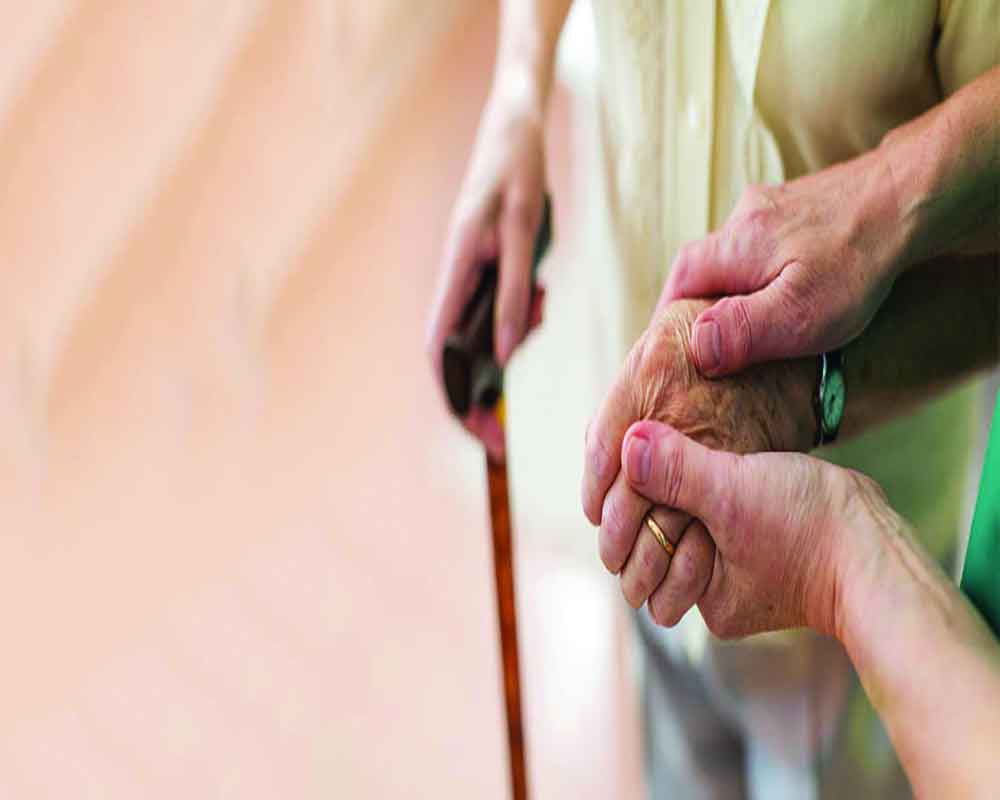ARCHANA JYOTI spoke to doctors about the Parkinson’s Disease that affects millions worldwide including India. Medical interventions and lifestyle adjustments, such as diet, exercise, stress management, and social engagement, are crucial for its management
Parkinson’s Disease (PD) is one of the most common movement disorders, primarily affecting individuals over the age of 60. The number of PD cases worldwide has significantly increased in the last two decades, with 0.58 million people affected in India alone. This number is expected to rise in the coming decades. PD, along with multiple sclerosis and chronic neurological illnesses, is now recognized as a disability under the recently passed Rights of Persons with Disabilities Act of 2016.
Yet, misconceptions surrounding this condition persist, hindering support and understanding, said Dr. Debasish Chaudhary, Head of Department of Neurology, GB Pant Hospital, Delhi
Below are some of the myths surrounding this progressive neurological condition.
Myth 1: PD is Untreatable
Fact: Although there is no cure, many treatments exist to manage symptoms and improve the quality of life. Medications, therapies like physical or speech therapy, and surgical options like deep brain stimulation can help. With proper management, many individuals can lead active lives.
Myth 2: PD Affects the Elderly Only.
Fact: Although PD is commonly diagnosed in older adults, it can affect people of any age, including younger adults and children. Early-onset Parkinson’s, diagnosed before the age of 50, is significant. Recognizing this variability in the age of onset is crucial for timely diagnosis and intervention.
Myth 3: PD is Just a Movement Disorder
Fact: While movement difficulties like tremors, stiffness, and slowness are hallmark symptoms, Parkinson’s is a complex condition with diverse symptoms. These include cognitive changes, mood swings, sleep problems, and gastrointestinal issues. Understanding this complexity is vital for providing comprehensive care.
Myth 4: PD is Always Hereditary
Fact: While genetics can contribute, most cases are sporadic with no clear genetic link. Environmental factors like toxin exposure may also play a role. Recognizing that not all cases are hereditary, and anyone can be affected, is essential.
Myth 5: PD is a Death Sentence
Fact: While chronic and progressive, Parkinson’s isn’t necessarily life-threatening. With proper care and lifestyle adjustments, many individuals can live decades after diagnosis. Support from healthcare professionals and caregivers is crucial for navigating life with Parkinson’s.
YOUNG ONSET PD
Dr Madhukar Bhardwaj, Senior Consultant and HOD, Neurology, Aakash Healthcare, talked about YOPD or Young Onset Parkinson Disease which affects individuals less than 40 years of age.
He said that YOPD usually presents with symptom/symptoms such as one sided hand tremors, slowness, postural imbalance or one sided weakness involving hand and leg. It is important to detect this since it is initially usually taken as stroke or other forms of tremors and goes undetected until a full florid form appears in a few months to years. It usually responds well to dopaminergic drugs, however in my experience the dose requirements increase over a period of time.
“These patients also go on to develop more drug induced adverse effects like dyskinesias and anxiety issues. Detailed history and Neuroimaging is important to rule out mimics. “In rare cases, it may be familial, and careful family tree must be established along with genetic testing (PARKIN gene) if a family member was found to have the symptoms at an early juvenile age.”
Identifying Symptoms
Dr. Atampreet Singh, Director of the Department of Neurology at Fortis Hospital Greater Noida, emphasized on the importance of recognizing common symptoms associated with PD in elders. These include tremors, muscle stiffness, slowed movement, and balance and coordination difficulties, which can increase the risk of falls. Dr Singh said that while there is no cure for Parkinson's, symptom management is crucial. “Treatment modalities include medications to control dopamine levels, physiotherapy to improve mobility, and, in select cases, surgical interventions such as deep brain stimulation (DBS).”
In fact, some neurologists said that Apomorphine is a promising rescue therapy that holds the potential rescue to significantly enhance the quality of life for people grappling with PD.
MANAGEMENT
Dr. Praween Kumar, CEO of Fortis Hospital Greater Noida, underscored the significance of combining medical interventions with positive lifestyle changes. “Individuals with PDs can lead fulfilling and active lives by incorporating consistent physical activity, a well-rounded diet, sufficient rest, stress management, and nurturing social connections. Despite the gravity of the condition, PD should not diminish life quality,” pointed out Dr Kumar.


























